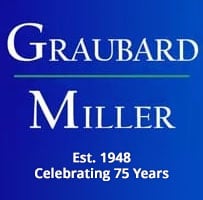Both federal law ends federal policies govern employment relationships. Businesses typically have an obligation to comply with all statutes and rules established by entities such as the Federal Trade Commission (FTC). Labor laws and federal rules govern minimum wage,...
We handle complex matters whether it’s around the corner or around the globe.
Uncategorized
How derivative actions help shareholders protect their investments
Shareholders play a crucial role at many organizations. They purchase a partial interest in the company, which can provide financial support to the company during times of growth or operational transition. Shareholders can voice their opinions at shareholder meetings,...
The FTC shuffles the deck with a non-compete ban
The Federal Trade Commission (FTC) has boldly reshaped the American labor market by banning non-compete agreements for most workers. Previously common in many industries, these clauses restricted employees from working for competitors after leaving their jobs. The...
How common ownership disputes can affect a business
Securing an ownership interest in a business is a major investment. Some people buy into established companies as shareholders and then help play a role in governing a corporate organization. They attend meetings, vote on certain key organizational decisions and...
How the SEC recently changed rules for SPACs
Some people refer to special purpose acquisition companies (SPACs) as shell companies. These organizations exist to help raise money to buy and company. They may also facilitate the initial public offering (IPO) of a business that intends to become a publicly-traded...
3 risks to address when planning a merger or acquisition
Mergers and acquisitions are often multi-million-dollar transactions. When two businesses decide to combine operations or when one organization purchases another, large amounts of money change hands. Substantial organizational changes are likely to follow, and...
Creditors’ rights when a debtor files for bankruptcy
Learning that a customer, client or any debtor has filed for bankruptcy is rarely good news. However, it’s becoming more common for businesses to receive that kind of notification. Bankruptcy filings increased last year, and business bankruptcies rose almost 30%. As a...
